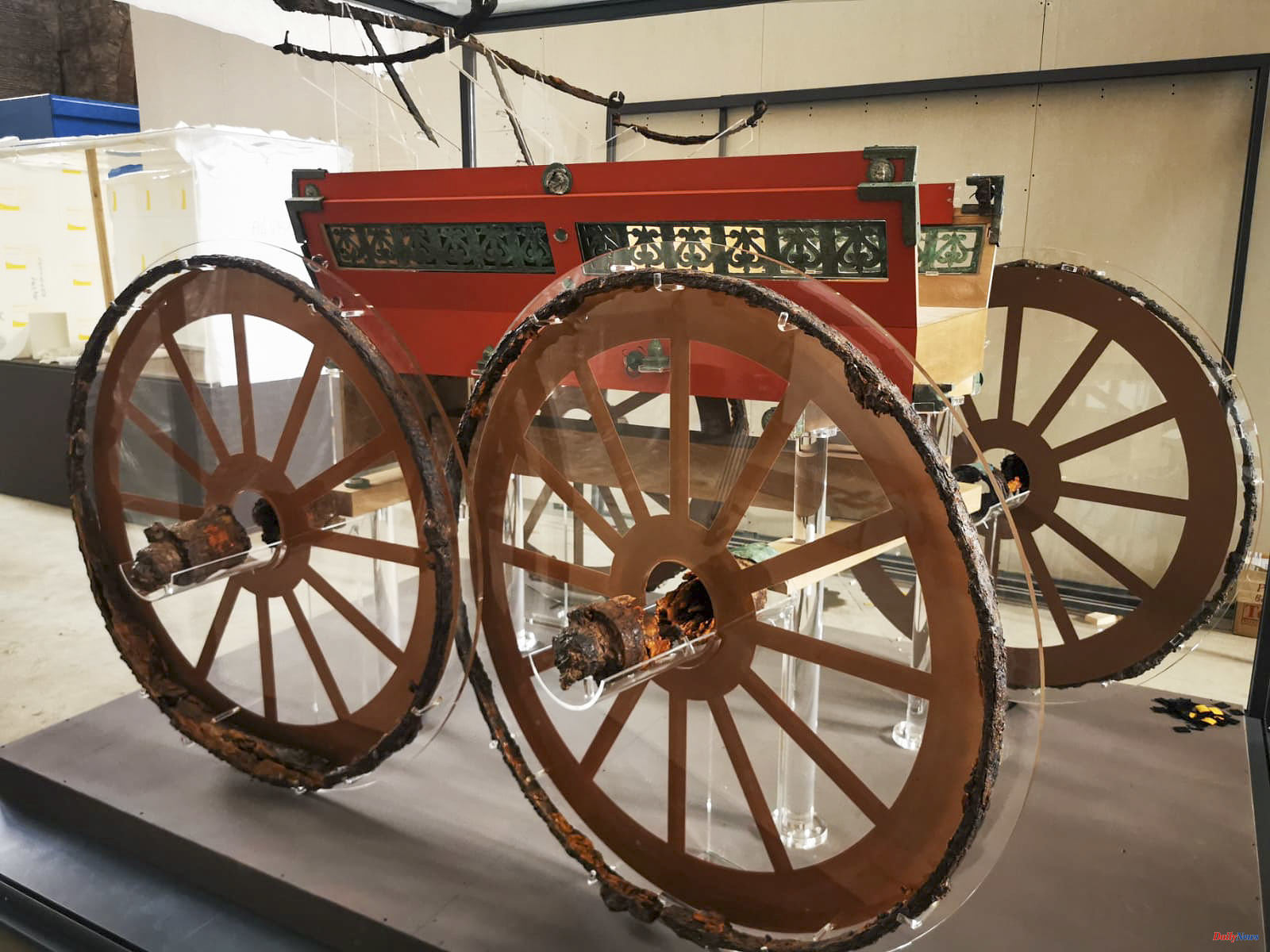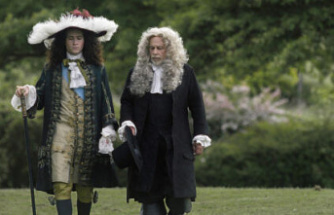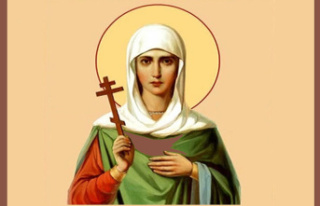In 2019, archaeologists exhumed a new treasure from the subsoil of the ancient city of Pompeii: a rare bronze and silver wedding car that has been reconstructed and is now on display in Rome, in an exhibition that delves into the relationship between modern man and their ancestors.
The public will be able to see this extraordinary vestige from today until July 30 at the exhibition "L'istante e l'eternità: tra noi e gli antichi" (The instant and eternity: between us and the ancients) at the Baths of Diocletian of the capital.
The cart has been identified as a "pilentum", a vehicle that in the classical world was used by the elites, especially for the ritual of accompanying the wife to her new home after marriage.
This is a unique case in Italy, not only because of its surprising state of preservation, after two thousand years under the ashes, but also because it is the first time that a wedding carriage - only one other was found in Thrace, Greece - has been studied and, also rebuilt.
The car was lost after the eruption of Vesuvius in 79 AD and in its long buried time, naturally, it lost its organic parts, such as wood or leather, but its metal structure, its axles and its decoration in erotic-themed silver and bronze.
All these parts have been placed in a new wooden cart with the same shape, thanks to the creation of a trace of the hole left underground, and in this way the visitor will be able to appreciate for the first time what a "pilentum" was like.
The result has been appreciated by authorities such as the Minister of Culture, Gennaro Sangiuliano, especially since its discovery was made possible thanks to a program of the Torre Annunziata Prosecutor's Office (south) that pursues the looting of the "vesuvian" sites.
The exhibition at the Baths of Diocletian has about 300 archaeological remains, including the chariot and other Greek, Etruscan, Italic, medieval and contemporary works, with the aim of analyzing the relationship between the modern world and Antiquity.
The tour opens with the tracings of two anonymous victims of the Vesuvius fire on ashes, whose twisted silhouette still allows us to feel the horror of the Pompeian disaster. It is the perfect example of eternity contained in an instant.
The organizers want to show that it is possible to empathize with those poor Pompeians even though they lived a long time ago.
The relationship between modern and ancient man, they explain in one of the panels, is "substantially double": on the one hand, it was created after a long process of artistic and intellectual transmission that forged the so-called Classical Culture; but on the other, "a phenomenon of assimilation" was generated with beings who experienced dramas and joys similar to the current ones (such as a wedding, in the case of the car).
In order to expose this relationship with antiquity, the exhibition reveals to the public for the first time archaeological remains discovered or restored in recent months.
Among the myths that made up the world today is the kidnapping of Princess Europa by Zeus turned into a bull and that appears personified for the first time in the so-called "Tabula Chigi", an important Roman bas-relief bought by the State last year.
The proximity of Antiquity is also evident in the religious rites, in the constructions - pieces of ceilings or frescoes from Pompeii have been brought to Rome -, in the routine of the houses or in the traditions.
The last showcase of the exhibition includes numerous representations of the body in terracotta, such as hands, feet, eyes, tongues, teeth, penises, vaginas or breasts, ex-voto offerings that men and women of remote times dedicated to the gods when something hurt them.
According to the criteria of The Trust Project












